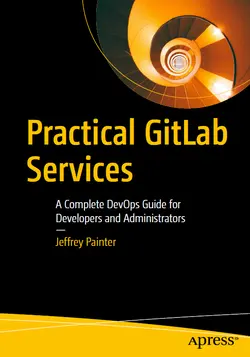Practical GitLab Services

eBook Details:
- Paperback: 941 pages
- Publisher: WOW! eBook (August 1, 2024)
- Language: English
- ISBN-10: 8868804267
- ISBN-13: 978-8868804267
eBook Description:
Practical GitLab Services: A Complete DevOps Guide for Developers and Administrators
Learn all about GitLab administration, the open-source DevOps platform helping millions develop and deploy safe and secure software. This Practical GitLab Services: A Complete DevOps Guide for Developers and Administrators book is designed to be your one-stop shop to get up and running with complete ease.
Start with the basics like setting up a GitLab account and exploring user options before moving on to GitLab’s primary function as a source code management tool. From there, you’ll learn about one of the most unique features of GitLab: CI/CD configuration files. The next step on the journey is a discussion of how to organize code into projects and groups, along with defining access permissions using roles. You’ll also examine the various planning tools provided by GitLab.
With the basic features out of the way, you’ll delve into more specialized services such as the built-in Docker image repository, the package registry, web page creation, and binary file storage. The book concludes with more advanced administrative topics such as working with GitLab’s REST and GraphQL APIs, setting up a proof-of-concept GitLab service using Amazon Web Services (AWS), and spinning up a production service that takes high availability and disaster recovery into account.
What You Will Learn
- Use GitLab to manage source code files, track and plan issues, run builds and tests, and deploy software
- See how administrators can support developers using GitLab
- Set up your own standalone installation using AWS
With an abundance of information available for deploying secure software, selecting the right documentation can often be daunting. From planning to monitoring, Practical GitLab Services: A Complete DevOps Guide for Developers and Administrators eliminates the unknown in your DevOps lifecycle.
